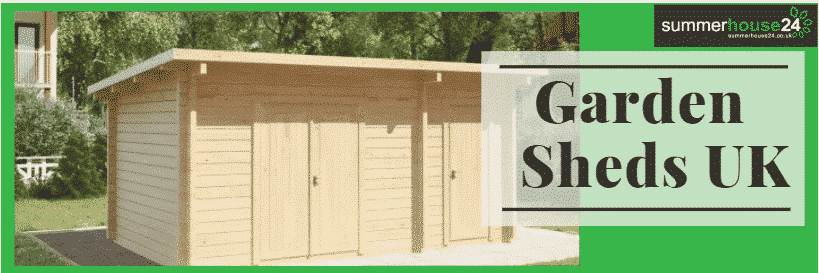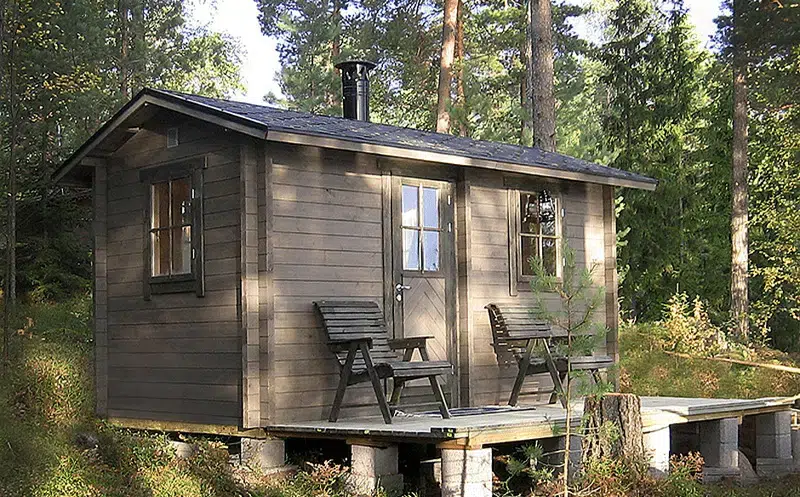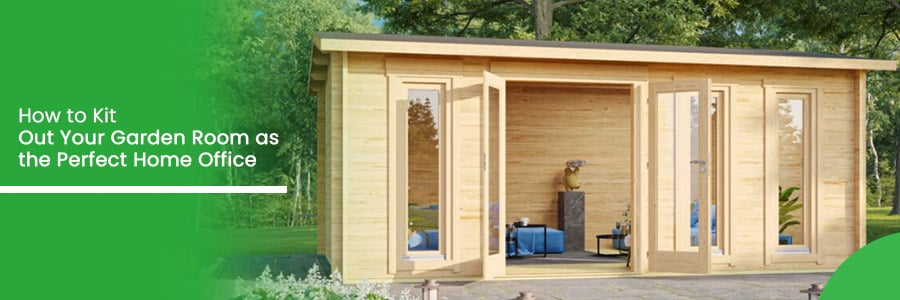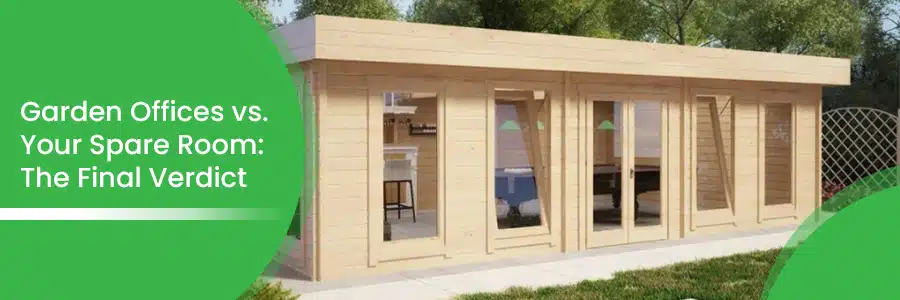Collection, Mess or Hoard – What’s in Your Garden Sheds UK?
26.09.2019
At Summer House 24, your UK one-stop for wooden garden summer houses, we know that for many homeowners in the UK, garden sheds can be valuable extra storage space where one can keep everything from childhood toys to designer handbags and old magazines, and that’s a fact.
We live in a world centred on consumerism, so it can be easier than you think to get attached to objects in the physical world. You might not need these right away nor they belong in your immediate surroundings, but nevertheless, they slowly find their way to storage in your garden shed.
But how do you differentiate between a collection of valuable items that you can pass on to your children, a mess that just needs to be sorted out, and actual signs of you being a hoarder? And can you save your garden sheds from being swallowed by a pile of things?
What’s the Definition?
A good start is to define these three abstract ideas. Once we do, you can see that they represent totally different states you and your garden space might be in.
1. Collecting
Collecting can be defined as a very organized sequence of items that may or may not have commercial value. Independently of monetary value, objects collected have meaning to the owner. Therefore, he or she will usually treat them preferentially, making sure no harm comes to any.
Apart from that, all the objects are related more or less to one topic or field.
Which means to say that if you have a collection in your garden storage sheds, then it could be filled with antique furniture, books, vintage movie posters, football memorabilia, and so on, all in pristine condition.
2. Hoarding
Hoarding, on the other hand, is considered to be a psychological disorder that a person cannot control. The owner will accumulate a vast quantity of waste items that have no to little real value to their owner. Hoarding stands for items that you are unable to part and is 100% counterproductive for healthy ageing.
3. Mess & Clutter
A mess or clutter is usually considered as being a normal state, especially when it comes to garden sheds.
People tend to keep things they no longer need in there and simply forget to clean the shed. However, if and when the mess or excessive clutter and waste get out of control, it is a sure sign of hoarding.
Important: There is a thin line between storage and the above three. Be it storage for your BBQ huts, grillkotas, outdoor furniture or else, making the difference is crucial for you might get rid of something you really should not.
Read our piece “No Time and Money? Decorating Hacks for Your Garden Office!” for inspiration on repurposing items you’d otherwise throw to waste.
What Are the Items Held in Your Garden Sheds?
Once again, depending on the three states your garden shed might find itself in, you will be surprised to discover that the items in there can greatly vary.
Here are some examples.
When it comes to hoarding as a disorder, the garden shed might hold a variety of mismatched items that go from soy sauce packets to socks. They are typically very old, some dating from decades ago.
There are documented cases of hoarder’s homes or annexes cleared out where people found magazines and newspapers dating back as far as the 70s and beyond.
Hoarders don’t have a system in place for the things that they store and they are not able to let go of the things they have without help. A hoard will also not be discovered until the garden shed starts to smell or until it other signs of poor hygiene. Most often than not it’s a relative or a neighbour that alerts the authorities.
When it comes to clutter, the owner of the garden sheds tends to gather up different items that have sentimental value.
There is no system in place for clutter either for objects could be broken or severely outdated.
Therefore, a clutter could stand for objects such as the following: An old remote control that could never be used again because technology has advanced too much, pairs of shoes that are beyond repair but which the owner has an attachment to, old cutlery, baby clothes even though there are no small children in the house and the list goes on.
According to Antonia from Escape Waste, there are several ways to deal with these items:
- You can find a cause you like or a person in need and donate clothes, shoes, old furniture, tools, etc.
- Check what can be repaired, repurposed and reused. Give a second life to your belongings.
- Outdated electronics can be recycled by companies specialising in e-waste disposal.
Collectors, on the other hand, are very methodic about their possessions. They are also very picky about what they put in their garden shed. All the objects have a specific value and must be related to the theme chosen.
More often than not, a collector will go to extreme lengths or pay a large amount of money to purchase the next addition to the collection. Therefore, the object will be taken care of once inside the shed.
What Impact Does This Have on You?
As mentioned earlier, hoarding is a psychological disorder. Scientists have now linked hoarding to other problems such as OCD, dementia, and ADHD, in light of recent findings.
An individual that suffers from symptoms associated with hoarding will feel socially isolated and may have strained relationships with his partner, family, and friends. That person could also go through a difficult financial period as many hoarders actually spend a lot of money buying things to add to their so-called hoard.
Cluttering to a certain degree is considered to be a normal part of life, especially when you have a garden shed made to house items you’d otherways throw to waste.
In fact, studies show that many feel a lot better when surrounded by clutter rather than living in a stark, sterile or empty environment. However, keep in mind that clutter can easily turn into hoarding if the psychological part is involved. Once clutter is difficult to part with, the threshold between the two is crossed.
Collecting has no negative impact on the person who takes up the habit. It is generally viewed as a hobby. A collector won’t feel stress or sadness when dealing with his or her collection. Apart from that, he or she will understand that, even though in his or her possession they are mere objects they are collecting.
What about You?
Do you fall under any of these categories with your garden sheds UK? Or do you know anyone who could use some help decluttering or letting go of their hoard? Let us know in the comment section below your thoughts and experiences on this topic!
Categories:
BlogWant to discuss over phone. Let us call back to you
If you need any additional info regarding any product, please fill in the below form and we will get back to you, usually the same or next working day.
Have any questions regarding some product?
If you need any additional info regarding any product, please send us your questions.





